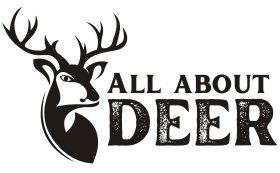Do deer eat coleus? Coleus, with its vibrant and colorful foliage, is a favorite among gardeners. Its striking appearance can add a touch of beauty to any garden.
Table of Contents
Key Takeaways
- Coleus is primarily grown for its decorative leaves rather than its flowers.
- Deer have a vast diet, but coleus might not be their first choice.
- The texture and scent of coleus can deter deer.
- There are strategies to protect your coleus from deer.
Understanding Deer’s Dietary Habits
Deer are known to be opportunistic feeders. This means they will often eat whatever is available, especially if their preferred food sources are scarce. Deers are primarily herbivores, which means plants make up the majority of their diet. However, not all plants are equally appealing to deer.
Coleus and Deer: A Complex Relationship
Texture and Scent
One of the primary reasons deer might avoid coleus is its texture and scent. Coleus leaves can be slightly fuzzy, and some varieties have a strong scent. Deer, being cautious animals, often avoid plants with strong odors or unusual textures.
Nutritional Value
While coleus is not toxic to deer, it doesn’t offer the same nutritional value as other plants. Deer often seek plants that provide essential nutrients, and coleus might not be at the top of their list.
Availability
Deer’s eating habits can also be influenced by the availability of food. In areas where food is abundant, deer might overlook coleus. However, in places where options are limited, they might give coleus a nibble.
Protecting Your Coleus
If you’re keen on keeping deer away from your coleus, here are some strategies:
Companion Planting
Planting deer-resistant plants around your coleus can act as a natural barrier. Plants like lavender, rosemary, and sage are known to deter deer.
Natural Repellents
There are various natural repellents available that can keep deer at bay. These repellents often use strong scents that deer dislike. Spraying them around your garden can protect your coleus.
Fencing
Physical barriers are often the most effective. Consider installing a fence around your garden. Deer can jump quite high, so ensure your fence is tall enough to prevent them from leaping over.
Coleus Varieties
There are numerous coleus varieties, each with its unique appearance. Some of the popular ones include:
| Variety | Description |
|---|---|
| Watermelon | Pink and green leaves, resembling a watermelon rind. |
| Pineapple | Bright yellow leaves with green edges. |
| Chocolate Mint | Dark brown leaves with a hint of green, resembling chocolate mint. |
Incorporating Coleus in Deer-Prone Areas
If you live in an area frequented by deer, don’t be disheartened. With the right strategies, you can enjoy the beauty of coleus without any deer-related disruptions. Consider using repellents, barriers, and companion planting to protect your garden.
The Role of Coleus in Biodiversity
Coleus, with its myriad of colors and patterns, plays a significant role in garden biodiversity. It attracts various pollinators, ensuring that your garden remains vibrant and ecologically balanced.
Conclusion
While coleus might not be a deer’s first choice, its presence in gardens can be beneficial for other reasons. Its vibrant colors attract pollinators, and its unique texture and scent can deter herbivores. By understanding the relationship between deer and coleus, gardeners can make informed decisions, ensuring that their gardens remain beautiful and undamaged.
Frequently Asked Questions
1. Are there any specific coleus varieties that deer prefer?
While deer might not have a particular preference for coleus due to its texture and scent, their choices can vary based on the region and availability of other food sources. Generally, no specific coleus variety has been identified as a favorite among deer.
2. How can I ensure that deer don’t damage other plants in my garden?
To protect your entire garden:
- Plant deer-resistant plants: These act as natural barriers. Examples include lavender, rosemary, and sage.
- Use repellents: Natural repellents with strong scents can deter deer.
- Install motion-activated sprinklers: The sudden movement and water can scare away deer.
3. Do other animals eat coleus?
Apart from deer, animals like rabbits might nibble on coleus. However, due to its scent and texture, it’s not a primary choice for many herbivores.
4. Is coleus harmful to pets?
While coleus is not a primary food source for deer and other herbivores, it can be toxic to pets like dogs and cats if ingested in large quantities. Always ensure that your pets don’t have access to plants that might be harmful to them.
5. Can I use coleus in a deer food plot?
While you can include coleus in a deer food plot, it might not be the most effective choice. Deer are more attracted to plants that offer higher nutritional value, like clover or soybeans.


